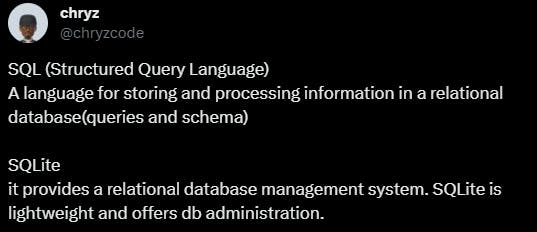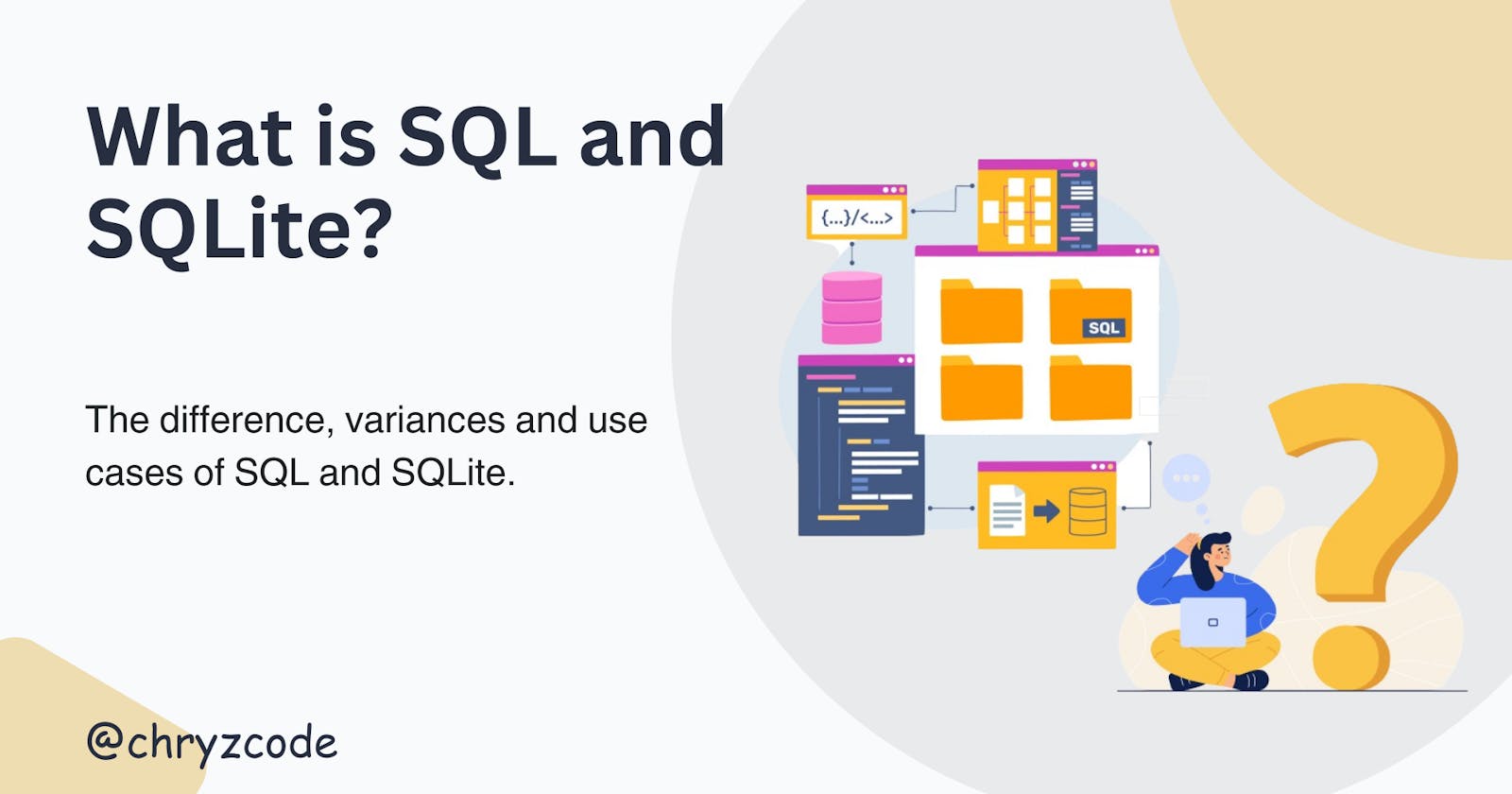Why this title/ subject matter?
As a software engineer, I had to use SQLite in a product; I learnt something new and saw the importance of using it because I use PostgreSQL more, and I made a post about it on X(Twitter)

Then, an account replied with a comment seeking clarity about SQL and SQLite.

More detailed content would be more insightful because why not?
What is SQL?
Structured Query Language is a programming language designed and utilized for storing, managing, processing and manipulating relational databases. A relational database uses rows and columns to store data in a tabular form. E.g. MySQL, PostgreSQL, SQLite, Microsoft SQL Server, and Oracle Database.
It was initially known as the Structured English Query Language (SEQUEL).
What is SQLite?
SQLite is a C-language library for implementing a small, fast, self-contained, high-reliability, full-featured SQL database engine (according to www.sqlite.org).
It is a library that binds to many programming languages and provides a relational database management system (RDBMS). The entire database is stored in a single disk file.
Differences between SQL and SQLite
There are quite a lot of differences, but a few basic ones will be outlined:
SQL is used by different SQL databases like MySQL, SQLite and PostgreSQL, while SQLite uses SQL
SQL is a query language, while SQLite is a database resource.
SQL is used to query a Relational Database System, while SQLite is a Relational Database Management System.
SQL is a standard for creating relational schema, while SQLite is file-based.
Use Cases of SQL and SQLite
SQL and SQLite might seem to have much in common to the extent of the naming, but they have different use cases. A basic few will be mentioned below:
SQL
Management of relational databases
The Relational Database Management System (RDMS) is software for managing relational databases and was built using the Structured Query Language (SQL). Therefore, the management and maintenance of relational databases can be done with SQL.
Performing basic database operations
SQL uses specific keywords to perform basic database functionalities like Creating, Reading, Updating and Deleting (CRUD) data.
SQL for websites
Most interactive and e-commerce websites, especially those with lots and tons of data, use SQL to fetch, retrieve and store data from their database when needed or required.
Integration with other scripting languages
SQL is integrated and supported by scripting languages like Python and R. Therefore, SQL can be used to manage databases in such languages.
SQLite
Websites
SQLite database engine can be used for storing the data of a website. It has a large bandwidth to operate with high-traffic websites and applications.
Fast and quick server-side database integration
The SQLite database can be the primary or secondary storage engine or database for server-side applications. It is also advisable to use SQLite database for mini-based applications, development environments, and Internal and temporary usage because of its flexibility, simplicity and speed.
Developers report that SQLite is often faster than a client/server SQL database engine.
Experimental SQL language extensions
The simplicity and modular design of the SQLite database make it a good platform for prototyping new, experimental database language features or ideas.
Conclusion
After going through and reading this article, I hope you were able to know and understand more about what SQL and SQLite are, their differences and use cases.
If yes, do well to like and share this piece and comment with me on Linkedin, Twitter and GitHub. And if you like what you read and want to show support, you can buy me coffee😉.

